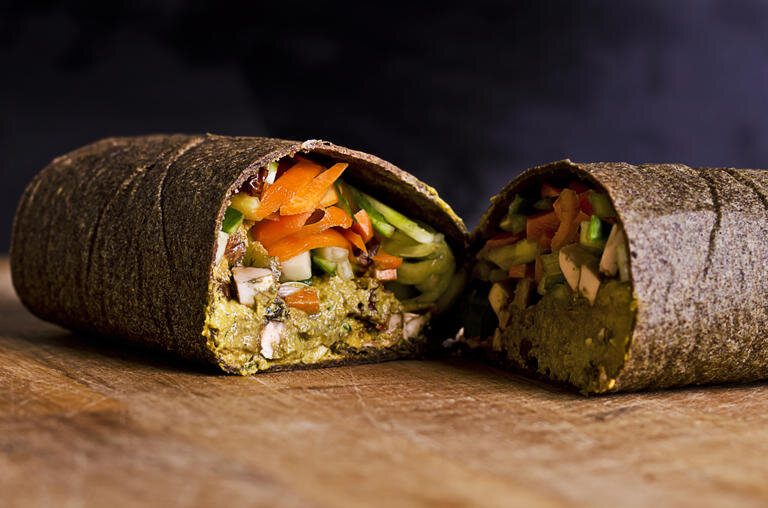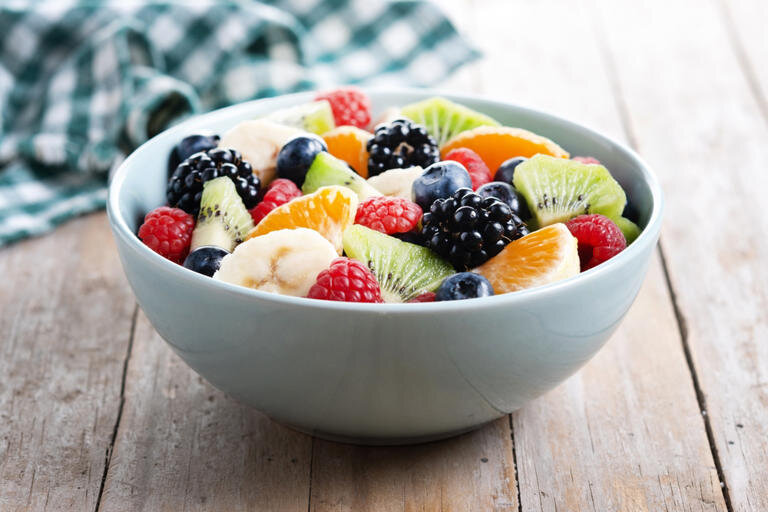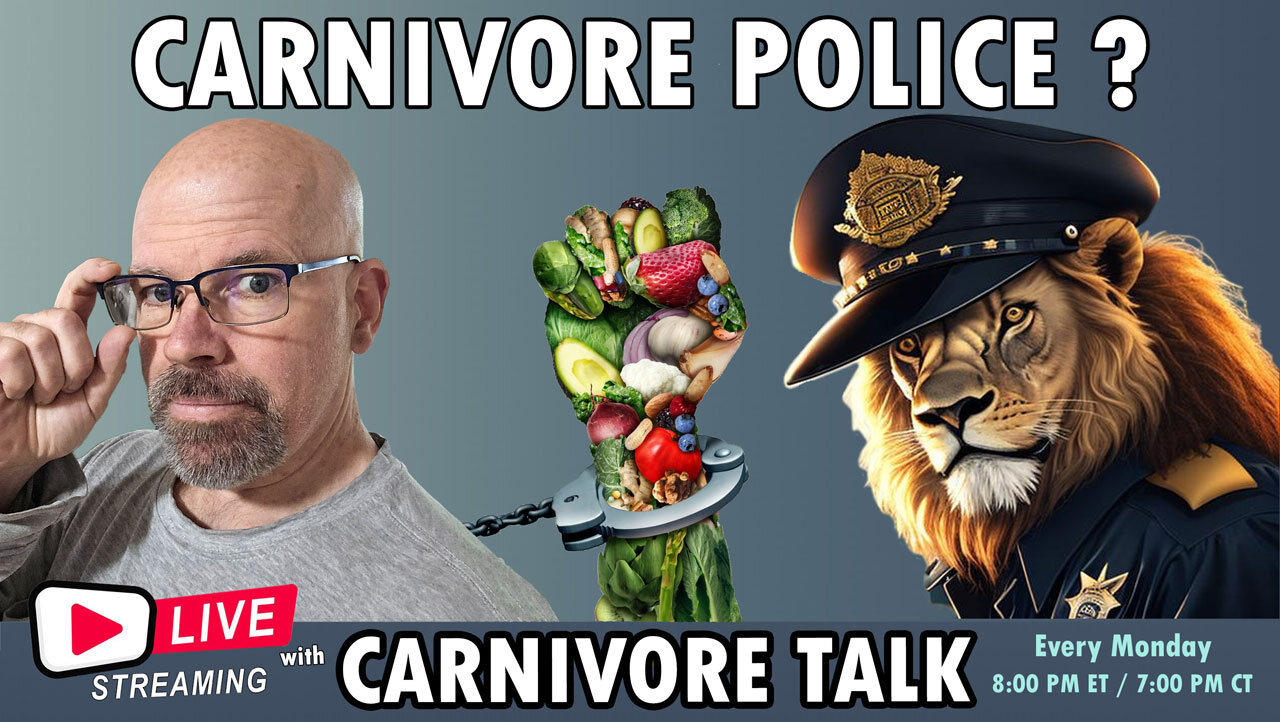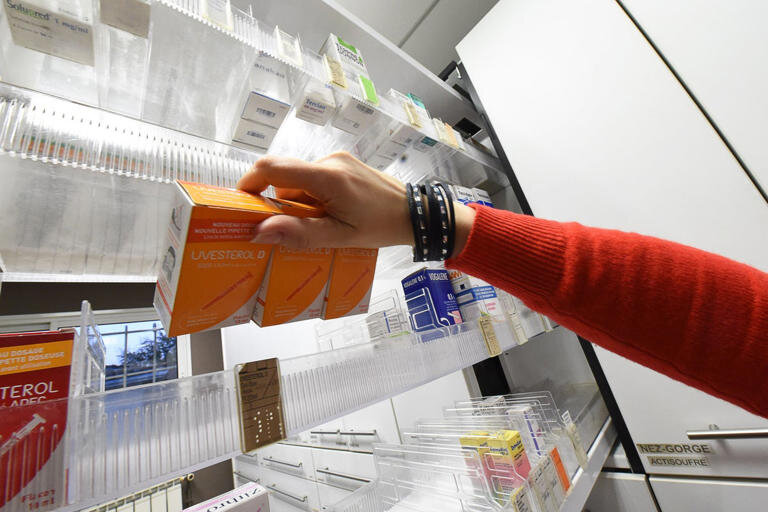Everything posted by Bob
-
New glasses coming
I splurged on nice glasses this last time around. We have insurance that probably cut the bill in half, but I still shelled out $500.
-
Figuring it out
Keep doing what you are doing. You've come a long way already. I've heard Dr. Berry say that the last few pounds are the most stubborn, and I agree. They are for me. I dropped 60 pounds with ease. I would like to lose at least 15 more. I know what I have to do. My problem is motivation. I am actually happy with my current weight, simply because it's a night and day difference from my previous appearance, lol.
-
The Women Who Ate Only Fruit... DIED!
A person's diet becomes their religion, their identity. I see this happen in the carnivore space as well. It is a mental disorder. A fruitarian really imagines they are on the moral high ground. They neither kill animals NOR plants. They never "take a life" - in their mind. Some probably have some Edenic thinking around it: "Of all the fruit trees of the garden you may eat to satisfaction". And while I believe that's true, it was not to the exclusion of other food options. A vegan/vegetarian actually has a better fighting chance than a fruitarian. Their diet isn't completely base in fructose. The more varied plants will provide more varied nutrients. Beans and some others contain proteins, etc. They still have to supplement, but it's not the death sentence that being a strict raw fruitivore seems to be.
-
The Women Who Ate Only Fruit... DIED!
What Happened to The Women Who Ate Only FruitStory by Julie Hambleton A 27-year-old woman, Karolina Krzzak, tragically died in a Bali hotel room after adhering to an extreme "fruitarian" diet. This highly restrictive, fruit-only eating pattern led to severe malnutrition and starvation, resulting in her death. At the time of her passing she weighed a mere 22 kilograms (approximately 48.5 lbs). Her story serves as a severe warning from medical professionals about the critical dangers associated with such extreme diets that promise rapid results or detoxification but lead to catastrophic health decline. Understanding the Fruitarian Diet - A fruitarian diet is an extreme version of the raw vegan diet where one primarily only eats fruit. Image credit: Shutterstock The fruitarian diet is an extremely restrictive subset of veganism where the consumer's primary, or sometimes exclusive, source of nutrition is raw fruit. While variations exist, some strict followers aim for 75% or more of their diet to consist of fruits, with the remainder potentially coming from nuts, seeds, and sometimes vegetables. The philosophy behind this diet often includes claims of detoxification, spiritual purity, and a belief that consuming only foods that can be harvested without killing the plant (like fruits that have fallen off) is the most natural and ethical way to eat. However, due to its severe limitations, the fruitarian diet is highly controversial among nutritionists, as it severely lacks essential nutrients like protein, calcium, iron, zinc, Omega-3 fatty acids, and Vitamin B12. This diet has a high risk of malnutrition, muscle loss, and severe health complications. The Consequences of Severe Malnutrition - Her fruitarian diet pushed her body into a starvation state. The extreme fruitarian diet deprived Karolina of essential macronutrients and micronutrients, causing her body to enter a starvation state. Medical reports indicated she was suffering from both osteoporosis, a condition marked by weakened bones, and an albumin deficiency. These are clear consequences of prolonged, poor nutrition and starvation. The doctors said that her fruit-only diet lacked vital components like proteins, fats, calcium, iron, vitamin B12, and adequate complex carbohydrates. This severe deficiency weakens the intestinal lining, disrupts electrolyte levels, and slows metabolism, ultimately causing multiple organs to fail. Doctor’s Warning: The Dangers of Restrictive Plans - Karolina's fruit-only diet caused her to essentially starve to death. Credit: @carolina.mariie Medical experts from strongly cautioned against following fruit-only or similar highly restrictive diets. They explained that while fruits offer vitamins and antioxidants, relying solely on them causes severe protein-energy malnutrition, leading to muscle loss, anemia, and life-threatening electrolyte imbalances. Furthermore, the high fructose content in excessive fruit consumption can elevate sugar, trigger insulin resistance, and increase the risk of related disease. The doctors stressed that long-term adherence to such trends can result in cognitive decline, fatigue, multi-organ dysfunction, and in severe cases like Karolina's, death. They emphasized that a healthy diet must be a balanced combination of fruits, vegetables, sufficient proteins, complex carbohydrates, and healthy fats. Not The First ‘Fruitarian' To Suffer A Similar Fate - Zhanna Samsonova also died in 2023 from eating a fruit-only diet. Sadly, Karolina is not the first to suffer this fate as a result from the fruitarian diet. Zhanna Samsonova, a Russian vegan raw food influencer known online as Zhanna D'Art, tragically died in July 2023 at the age of 39 in Malaysia. Reportedly, she died from "starvation and exhaustion" exacerbated by her extremely restrictive diet. For at least the last four years of her life, she had followed an exclusively raw vegan diet, subsisting mainly on fruits, sunflower seed sprouts, fruit smoothies, and juices. At its most extreme, friends reported her diet was almost entirely fruit-based, with some claims suggesting she had not consumed water for six years. Instead, she had opted for fruit and vegetable juices. Samsonova passionately promoted this raw food lifestyle on social media, believing it transformed her body and made her look younger than her peers. Read More: Health Organization Offers Strict ‘Soup and Shake' Diet to Reverse Type 2 Diabetes. Does it Actually Work? The Warning Signs and Family’s Battle - Zhanna's health declined fast due to her fruitarian diet. Despite her online assertions of wellness, Samsonova's health had been visibly deteriorating. Friends noted her "increasingly emaciated" appearance and expressed profound worry. One friend described how they feared "finding her lifeless body in the morning." Her mother, Vera Samsonova, had desperately fought to save her daughter, disapproving of the extreme eating habits and trying to convince her to adopt a more balanced diet. Just months before her death, friends saw her in Sri Lanka looking exhausted with swollen legs and oozing lymph nodes. She was reportedly sent home to seek treatment, only to run away and resume her travels. Her official cause of death was attributed by her mother to a "cholera-like infection," which was believed to have been worsened by the extreme exhaustion and malnutrition caused by her strict vegan diet. Are Raw, Vegan Diets To Blame? - Raw, vegan diets are not necessarily bad, but they must be balanced. Image credit: Shutterstock The core issue that led to the deaths of both women was not a standard or balanced raw, vegan diet. Rather, it was the extreme and restrictive nature of the specific "fruitarian" and raw food regimens they followed that induced severe malnutrition and starvation. In the case of Karolina Krzyzak, doctors explicitly linked her death to starvation and the severe medical conditions directly caused by her fruit-only diet. Her death was a result of the catastrophic breakdown of her body due to the total lack of essential proteins, fats, and other critical nutrients. Therefore, the diet itself, by causing starvation, was the direct fatal mechanism. Extreme Diets Are Not The AnswerThe human body is complex and requires a wide range of macro- and micronutrients in order to function and thrive. The issue with extreme or restrictive diets such as these are that they don't provide even the minimum amount of calories that a person needs for the basic functioning of their body. Yes, fruits and vegetables are good for you – both in raw and cooked forms. Yes, the general population could eat more of these products. However, eating only fruits and vegetables does not provide you with enough protein, carbohydrates, fat, and calories to live. Eventually your body's systems will start failing. True health comes from a diet that contains a proper balance of a variety of different foods. Whole grains, root vegetables and tubers, lentils, beans, unsaturated oils, nuts and seeds, and animal sources of proteins if you so choose. It is also okay to occasionally include foods with less nutritional value, like cakes, cookies, french fries – so long as they are not regular occurance. Fruits and vegetables should be staple parts of our diet, but they cannot be the only thing we eat. If you are unsure if you are getting the right nutrition that you need, speak with a registered dietitian. They can help you build the diet that is right for you. Disclaimer: This information is not intended to be a substitute for professional medical advice, diagnosis or treatment and is for information only. Always seek the advice of your physician or another qualified health provider with any questions about your medical condition and/or current medication. Do not disregard professional medical advice or delay seeking advice or treatment because of something you have read here. ARTICLE SOURCE: https://www.msn.com/en-us/health/other/what-happened-to-the-women-who-ate-only-fruit/ar-AA1QrBt2?
-
The Holiday Cheesecakes are done
Based on our live discussion last night on YouTube, it sounds like those 'carnivore/keto' cheesecakes sure hit the spot, lol. I'll have to try and make one some day. I'm lazy when it comes to recipes and creativity. I'm more of a heat and eat kind of guy.
-
Smart phone, ughh
I'm not familiar with the app, but it sounds like you might have 2 separate accounts now (the old account, and the new one). I log my lab results in an Excel spreadsheet, with the name of the blood or urine marker down the left side and the date of the blood draw along the top, so I can easily see my changes over time. I do this on my laptop, but Excel or Google Sheets has apps for your phone also. Of course it may just be easier for you to just keep on with the new/current setup. After all, it's your most up-to-date results that are important, not so much the historical ones.
-
Surviving the Holidays on a Carnivore Diet
until
'Tis the season where everyone you know eats, and eats, and eats. Family get togethers are chock full of candy, cakes, cookies, pies, and the pressure is on, whether that's temptation or peer pressure from family members or both. Did you cheat or remain faithful? If you cheated can you get back in the game or are you now struggling? Join us ON SCREEN with your camera and device, or in the chat, as we discuss surviving the holidays on the carnivore diet here on Carnivore Talk. WATCH: https://www.youtube.com/watch?v=ugUmp8luuDo JOIN US ONSCREEN: https://carnivoretalk.com/topic/1337-monday-night-live-streams-how-you-can-watch-andor-be-a-guest-with-bob-geezy/ -
America’s Most Popular Cooking Oil Linked to Obesity in New Study
America’s Most Popular Cooking Oil Linked to Obesity in New StudyDec 01, 2025 at 10:18 AM EST By Jasmine Laws, US News Reporter A new study has found that soybean oil contributed to obesity in mice, prompting concern that the United States' most popular cooking oil could be playing a role in the country's obesity problem. The University of California, Riverside study, published in the Journal of Lipid Research in October, investigated how mice metabolized linoleic acid, an omega-6 fatty acid widely present in soybean oil, by feeding them a high-fat diet based on the common cooking oil. While the study was conducted on mice, Frances Sladek, a UCR professor of cell biology and author of the study, told Newsweek that the findings "were translatable to humans as the pathways we found involved in soybean oil-induced obesity are highly conserved between mouse and human." Why It MattersSoybean oil is by far the most widely used cooking oil in the country, with rapeseed oil second and palm oil third, according to data from Statista. Soybean oil is also made up of more than 50 percent linoleic acid, Sladek said. The finding raises notable concern, not only because of the oil's popularity, but also because of America's high obesity rates—one in five children and two in five adults are obese in the U.S., meaning they have a Body Mass Index (BMI) higher than 30. Obesity is known to be associated with higher risks of health problems, including diabetes, heart disease and strokes. The American diet has also been called into question by studies previously, as last year a study found that the majority of Americans ate a diet that promoted inflammation, increasing the risk of diseases such as heart disease, obesity, diabetes, depression and certain cancers. Stock image: A person pours soybean oil into a frying pan. | coffeekai/Getty Images What To KnowThe study specifically examined the effects of molecules called oxylipins on mice. These molecules are what linoleic acid is broken down into in the body, and so the higher the consumption of the acid, the higher the amount of these molecules will be in the body. While other fatty acids also break down into oxylipins, the oxylipins derived from linoleic acid were the ones the authors found contributed to obesity in mice. The finding is not new; the researchers noted this result in a previous study. What they did differently in this study was test the impact of a diet high in soybean oil in a group of male mice genetically engineered to express a different version of a liver regulatory gene, P2-HNF4α. This meant they had different metabolic pathways from the control group, as the genetic change reduced the activity of enzymes that convert linoleic acid into oxylipins. The researchers found that the modified mice had healthier livers and gained less weight than the control group on the same diet, further supporting the idea that oxylipins contribute to obesity. “This may be the first step toward understanding why some people gain weight more easily than others on a diet high in soybean oil,” said Sonia Deol, a UCR biomedical scientist and another author of the study. Although the researchers also note that the genetically modified mice had elevated oxylipins on a low-fat diet without becoming obese, suggesting that other metabolic factors are at play. Sladek said that they found that "it is the levels of the oxylipins present in the liver, not circulating in the blood, that correlate with obesity." However, he said that they aren't yet certain about "exactly how the oxylipins drive obesity." How Much Soybean Oil Do Americans Actually Consume?Consuming a small amount of linoleic acid is actually required for human health and is part of a healthy diet; however, the researchers noted that America has had a "remarkable increase" in its consumption of the oil over the past 50 years. The required amount of linoleic acid for health is around 1 to 2 percent of a person's calorific intake, the study authors noted, as small amounts play an important role in maintaining good health. Most Americans broadly have a much higher intake of linoleic acid at around 15 to 25 percent of their calorific intake, the study authors said. Sladek said that consuming small amounts of soybean oil is "perfectly safe and provides a good source of the essential fatty acid linoleic acid." He said that the problem is that "processed foods are becoming an ever larger part of our diet and many of those foods have soybean oil in them, or they have corn oil, safflower seed oil, sunflower seed oil — all these seed oils are made up of large amounts of linoleic acid, just like soybean oil." "So in general, we are taking in much more of these seed oils, all of which have high levels of linoleic acid, than our body needs," he added. What Does Soybean Oil Do to Your Body?It is not clear from the study how these findings would translate to the human body, and further research is needed to determine the impact of soybean oil on human health. However, the study authors note that the findings suggest the possible link warrants further investigation. Sladek said: "It took 100 years from the first observed link between chewing tobacco and cancer to get warning labels on cigarettes. We hope it won’t take that long for society to recognize the link between excessive soybean oil consumption and negative health effects." He also told Newsweek that in previous research, the team found that the soybean oil could impact the intestines, the microbiome and the hypothalamus. He said that while there is a growing body of evidence indicating that dietary linoleic acid is beneficial for the heart, "we have not looked at the impact of a soybean oil diet on the heart." "Different organs will respond differently to dietary linoleic acid and more research in general needs to be done," Sladek added. Other experts are not convinced of the findings, though. Dr. Dariush Mozaffarian, the director of the Food is Medicine Institute at Tufts University, told Newsweek: "Much of the original research suggesting harms of omega-6 [polyunsaturated fatty acids], like this study, was done in mice or rats." "We’ve since clearly learned that humans are not mice, and that these effects don’t translate to what’s seen in humans," Mozaffarian said. "In mice, for example, high fat diets (from any source) cause obesity, whereas in humans, carbs are the problem." He said that in controlled trials in humans, soybean oil and omega-6 polyunsaturated fatty acids were found to "improve blood cholesterol levels, improve glucose control, and lower risk of heart attacks," while in "observational studies," these oils are "linked to less weight gain and obesity risk." Mozaffarian said that soybean oil is a "healthy oil for cooking," and pointed to studies finding that a tablespoon and a half daily of soybean oil could reduce the risk of coronary heart disease, that the oil does not have pro-inflammatory effects, and that those who consumed 5 grams a day had a lower risk of "all-cause mortality." ARTICLE SOURCE: https://www.newsweek.com/soybean-oil-linked-to-obesity-study-11133940
- All i watch ...
-
My best BGL Thanksgiving ever
I stayed zero carb as well. But both my side of the family and my wife's side of the family no longer holds any get-togethers, so it's just another day for us. My son's girlfriend and her father came over and we binge-watched the first volume of Stranger Things season 5. She made a lasagna type dish with rogatoni's in it, which I of course didn't have. But her and her father also made some sausage links in a crock pot with some peppers and a tomato sauce. The father had his on a hoagie bun, and I had mine on some Egg Life Wraps.
-
Looks like Tapatalk is dying
In the past it was painful to view forums on a mobile device, so Tapatalk was the solution. It's not so important for us today though. The software than runs Carnivore Talk has a pretty good mobile display using a regular browser.
-
The supplement that dramatically cuts heart attack risk
I take 10,000 IU's a day, which I do NOT recommend that other people do. I spill the protein that binds to vitamin D (because of my kidney disease) so even though I take such large amounts, I can't get my Vitamin D-25 any higher than 50-55. Toxicity potentially becomes an issue above 100-120. Most people will do well with a single 500 to 2000 IU capsule daily if you aren't in the sun often.
-
No Monday Night Live Tonight - November 24th, 2025
Hello everyone, There will be no livestream tonight. Today is an 'anniversary' of a tragic moment in years gone by, and my wife wants to get out of the house and do something fun to keep her mind busy. So naturally I am going to be a good husband and oblige. Hope you all understand. - Bob
-
Fiber on a Carnviore Diet?
until
Modern medical "wisdom" tells you that you need fiber in your diet, that is it essential. If that is the case, how can you get enough fiber while on a canrivore diet? Join Bob and Geoff and the Carnivore Talk group this Monday night either on screen with your device and camera or in the chat as we discuss the pros and cons, the successes and challenges of the carnivore diet. WATCH: https://www.youtube.com/live/ea1cTvOBIKY?si=10Ggqmq2v2pU35QL JOIN US ONSCREEN: https://carnivoretalk.com/topic/1337-monday-night-live-streams-how-you-can-watch-andor-be-a-guest-with-bob-geezy/ -
Venison is back on the menu.
When I was a kid my dad was a hunter. He often brought back deer and tried to convince me it was Rudolph or Bambi, lol. He would process it himself in the garage and kitchen, and send the heads away to a taxidermist (??) which then sent them back and they are still on his wall to this day.
-
Don't be a Militant Carnivore Cop! [Video/Podcast]
Those of us who make up the carnivore community need to focus on building up and encouraging one another, and not laying down an bunch of rules and then telling others that they aren't a "true carnivore" because they might not be as strict as can be. A carnivore-centric diet can of course be strict for some, but it doesn't have to be for everyone. A hypercarnivore, by definition, consumes 70% or more of their diet from animal products. HERE'S HOW TO JOIN US ONSCREEN AS A GUEST... https://carnivoretalk.com/events/ LET'S DO A VIDEO TOGETHER! Have YOU had success with a meat-based keto, ketovore, carnivore, carnivore-centric, or animal-based diet? Let's do a video together! Contact me using this form... https://carnivoretalk.com/contact/ JOIN THIS CHANNEL TO GET ACCESS TO PERKS! https://www.youtube.com/channel/UCeAwaxsqfNEK4ZtfWX3Dz3g/join VISIT OUR FREE KETO/CARNIVORE COMMUNITY! https://www.CarnivoreTalk.com HAVE YOUR QUESTION ANSWERED IN A FUTURE VIDEO: Click the link below to leave us a Voicemail, and we might feature your question on the next episode of Carnivore Talk. https://carnivoretalk.com/voicemail/ SEND SNAIL MAIL TO: Robert Angle Carnivore Talk PO Box 1367 Stow, OH 44224 DISCLAIMER: The Carnivore Talk website, and its audio and video content are for general informational purposes only. The use of the information found within our content or from materials linked to from our content is at the user’s own risk. The content published by Carnivore Talk is not intended to be a substitute for professional medical advice, diagnosis, or treatment. Users should seek the assistance of their health care professionals to obtain medical advice and to diagnose or treat any condition. We are NOT doctors! #carnivore #carnivorediet View full episode
-
Don't be a Militant Carnivore Cop!
Those of us who make up the carnivore community need to focus on building up and encouraging one another, and not laying down an bunch of rules and then telling others that they aren't a "true carnivore" because they might not be as strict as can be. A carnivore-centric diet can of course be strict for some, but it doesn't have to be for everyone. A hypercarnivore, by definition, consumes 70% or more of their diet from animal products. HERE'S HOW TO JOIN US ONSCREEN AS A GUEST... https://carnivoretalk.com/events/ LET'S DO A VIDEO TOGETHER! Have YOU had success with a meat-based keto, ketovore, carnivore, carnivore-centric, or animal-based diet? Let's do a video together! Contact me using this form... https://carnivoretalk.com/contact/ JOIN THIS CHANNEL TO GET ACCESS TO PERKS! https://www.youtube.com/channel/UCeAwaxsqfNEK4ZtfWX3Dz3g/join VISIT OUR FREE KETO/CARNIVORE COMMUNITY! https://www.CarnivoreTalk.com HAVE YOUR QUESTION ANSWERED IN A FUTURE VIDEO: Click the link below to leave us a Voicemail, and we might feature your question on the next episode of Carnivore Talk. https://carnivoretalk.com/voicemail/ SEND SNAIL MAIL TO: Robert Angle Carnivore Talk PO Box 1367 Stow, OH 44224 DISCLAIMER: The Carnivore Talk website, and its audio and video content are for general informational purposes only. The use of the information found within our content or from materials linked to from our content is at the user’s own risk. The content published by Carnivore Talk is not intended to be a substitute for professional medical advice, diagnosis, or treatment. Users should seek the assistance of their health care professionals to obtain medical advice and to diagnose or treat any condition. We are NOT doctors! #carnivore #carnivorediet
-
The supplement that dramatically cuts heart attack risk
This supplement dramatically cuts heart attack risk, scientists sayStory by Vishwam Sankaran A pharmacist removes boxes of "Uvesterol D" vitamin medication from a shelf© AFP via Getty Images Scientists have found tailoring the intake of vitamin D in patients diagnosed with heart disease can dramatically cut the risk of heart attacks. The finding suggests individualising vitamin D doses for patients based on their blood levels rather than administering uniform “one-size-fits-all” doses as has been done commonly until now. Vitamin D is a hormone mainly synthesised in the skin via sunlight exposure, and is known for its positive effects on inflammation and heart health. Widespread vitamin D insufficiency and the growing burden of heart disease globally emphasise the need for simple, cost-effective interventions to reduce death risk. While low vitamin D concentration is linked to adverse heart disease outcomes, intervention studies until now have yielded inconsistent results, researchers say. Now, scientists call for tailoring vitamin D intake for each patient to achieve optimal circulating levels as a key strategy to mitigate heart disease risk. “Our results suggest that targeting vitamin D supplementation based on blood levels can significantly diminish the risk of subsequent heart attacks,” said epidemiologist Heidi T May from Intermountain Health. “This approach demands a personalised, vigilant clinical protocol that diverges from the traditional fixed-dose model,” said Dr May, an author of the study presented at the American Heart Association’s Scientific Sessions 2025. Researchers recommend a rigorous monitoring protocol which adjusts vitamin D supplementation every three months. The latest clinical trial assessed 630 adult participants diagnosed with acute heart disease at Intermountain Medical Center in Utah for a six-year period, with an average follow-up of just over four years. Nearly half had a history of prior heart attack. Over 85 per cent of participants initially had suboptimal vitamin D levels below 40 nanograms per millilitre (ng/mL) of blood, underscoring widespread insufficiency of the hormone in this population. Researchers grouped the participants randomly into two groups – one, which received standard care without vitamin D level management, and another treatment arm, which underwent serial blood testing and personalised dosing of the hormone to surpass the 40 ng/mL threshold safely. Scientists found that the treatment group experienced a 52 per cent reduction in the risk of recurrent heart attacks compared to controls. This finding marks one of the most significant effect sizes reported in recent vitamin D cardiovascular research, researchers noted. However, researchers urge doctors to be cautious of the findings as it remains to be corroborated by larger, peer-reviewed trials. Nonetheless, they say the data could pave the way for new heart attack prevention strategies centered on nutrient optimisation. ARTICLE SOURCE: https://www.msn.com/en-us/health/other/this-supplement-dramatically-cuts-heart-attack-risk-scientists-say/ar-AA1QcrMa?
-
Keto Rash / Histamine intolerance
Sorry for the delay. I've had a crazy few weeks in real life due to a large construction project were on. And there's like zero cell signals there so all day long my phone is useless. Hydrocortisone cream my provide some relief. Keto rash is a common topic and there's a plethora of information out there, along with various ideas as to what causes it and how to prevent it. https://www.bing.com/search?q=ketp+rash
-
My Journey from Low Carb to Carnivore
If we tag her like this ---> @Asmaa or quote her words, she should get an email letting her know we're talking about her :) So what were the results?
-
Carnivore Diet Vitamins & Supplements
until
What kind of supplementation, if any, might you need on a carnivore diet? What supplements are you currently taking? Join Bob and Geoff ON SCREEN with your device, or join us in the chat, for our weekly "open mic" carnivore roundtable discussion. WATCH: https://www.youtube.com/live/4dr-Iu2tnoc?si=sCWbxeBOLgNLN3s_ JOIN US ONSCREEN: https://carnivoretalk.com/topic/1337-monday-night-live-streams-how-you-can-watch-andor-be-a-guest-with-bob-geezy/ -
New Dietary Guidelines to Advocate Saturated Fat?
until
Robert F. Kennedy Jr. is advocating for increased consumption of saturated fats as part of new dietary guidelines he plans to release. He argues that current restrictions on saturated fats are misguided and promotes a diet that includes natural, high-fat foods such as dairy and quality meats. This initiative is part of his "Make America Healthy Again" campaign, which aims to shift the government's stance on dietary recommendations. Current guidelines suggest limiting saturated fats to 10% of daily calories, but Kennedy believes these should be revised to encourage their inclusion in diets. WHAT DO YOU THINK? Join us either ON SCREEN as our guest or in the CHAT tonight as we discuss saturated fats on the carnivore diet. WATCH: https://www.youtube.com/live/RTNtjaAnZyc?si=YI8SgnMXiA7iTGuQ JOIN US ONSCREEN: https://carnivoretalk.com/topic/1337-monday-night-live-streams-how-you-can-watch-andor-be-a-guest-with-bob-geezy/ -
How are you Cutting Costs on your Carnivore Diet?
until
From rising beef prices to growing grocery budgets, what are you doing to cut costs on the carnivore diet? Join Bob, Geoff, and random guests ON SCREEN with your camera and device or in the chat as we discuss the financial aspect of living the carnivore lifestyle. WATCH: https://www.youtube.com/live/mrwXb6Z91BI?si=reBzZqtL-fpzsAkx JOIN US ONSCREEN: https://carnivoretalk.com/topic/1337-monday-night-live-streams-how-you-can-watch-andor-be-a-guest-with-bob-geezy/ -
Keto Rash / Histamine intolerance
So let's start by describing your symptoms. Where is the rash? Is it all over or concentrated on certain parts of your body? Does it itch? I can understand why you might not be sure which it is, a keto rash or a histamine intolerance, since symptoms of the two can be similar. I wouldn't do this. Like @Geezy said, fat is your energy. I would still aim for 70% of your calories coming from fat and 30% coming from protein (this is acheived by basically eat 1g of fat for every 1g of protein). According to Dr. Boz, on variant of a Keto rash in an inflammation caused by little "critters" living in your skin that love glucose. If you are not eating enough fat, then your body will be working overtime to convert protein into glucose through a process called gluconeogenesis. It's as if you are eating carbs. They were initially starved when you started keto, but when you decided to lower the fat, your glucose production may have went up, and these little guys got excited and started multiplying. I'm not sure if I buy that, but she makes it make sense. If you are actively losing weight and burning your body fat, these could actually have toxins or histamines stored in them, which are being released into your blood stream. Again, where is the rash? Centrally located? Or all over? Some thoughts on how to test this yourself include adding back in 50-100 carbs a day for the next 2 weeks by adding fruit. This is called an "animal-based" carnivore diet (for whatever reason, lol). But STILL EAT the eggs, steak, and whatever else you have been eating. If it's keto rash, symptoms should alleviate and you can then try again with cutting the plants out. If it's histamines I wouldn't expect any changes. For keto rash, topical steroids will help for itching and oral antibiotics with help with inflammation. To test for histamines, aim for the freshest meat possible, straight from the butcher. Grocery store meat will have been hung and aged for weeks before packaging. Avoid jerky, canned meats, etc. For histamines, an antihistamine will help alleviate the itch. So if antihistamines help, your problem leans towards histamine intolerance. If hydrocortisone cream and an antibiotic help, then it's more likely keto rash.
-
Dr. Tony Hampton video on carnivore carb intake
Yes, through gluconeogenesis, the body synthesizes glucose from proteins to maintain blood sugar levels and prevent hypoglycemia, as certain cells in your body are dependent on glucose. While it's demand-driven, it's not a fast process. It can be triggered by fasting, but it doesn't really contribute meaningfully until after about 6 hours of fasting. Maybe a little sooner with intense exercise. So that intense exercise for most people (carb eaters) is fueled by glucagon that's already in your cells. Glucose in your blood can be quickly ushered into the cells with insulin. But if there is no glucose freely flowing in your veins and you are not fully fat adapted you will likely feel fatigued and weaker because your running low on energy. If you are fat adapted and the body is expecting these regular intense exercise sessions then it will have plenty of fat/ketones on hand.







